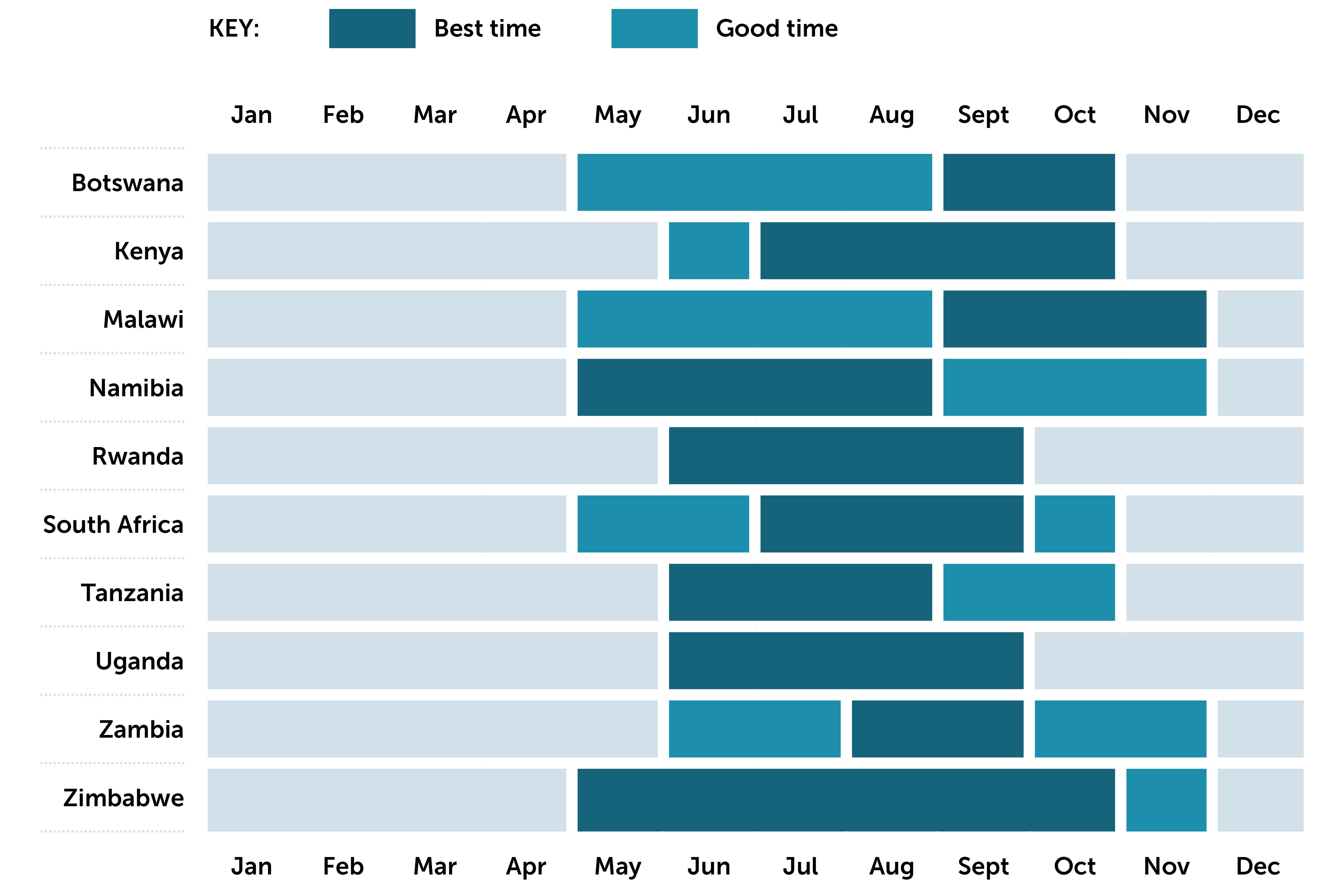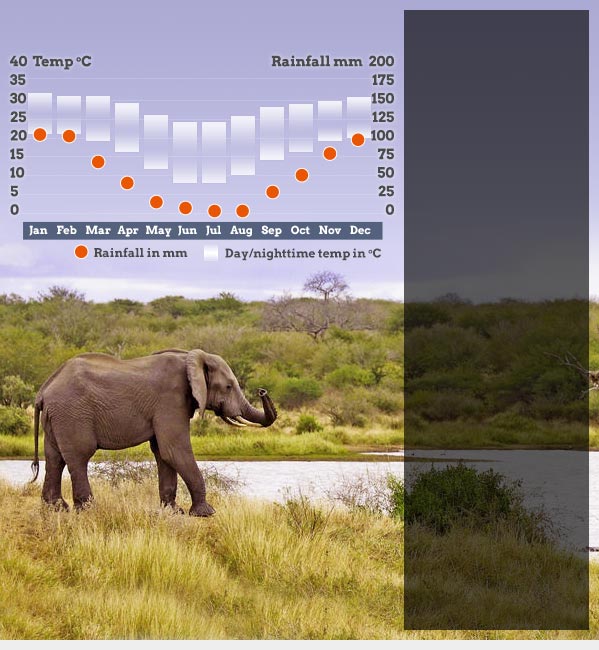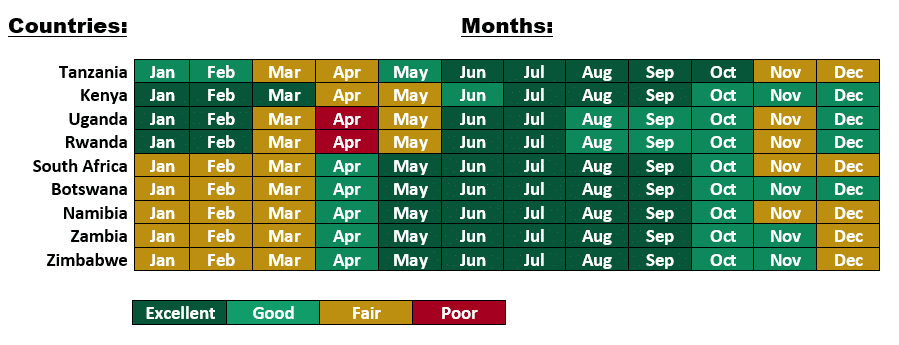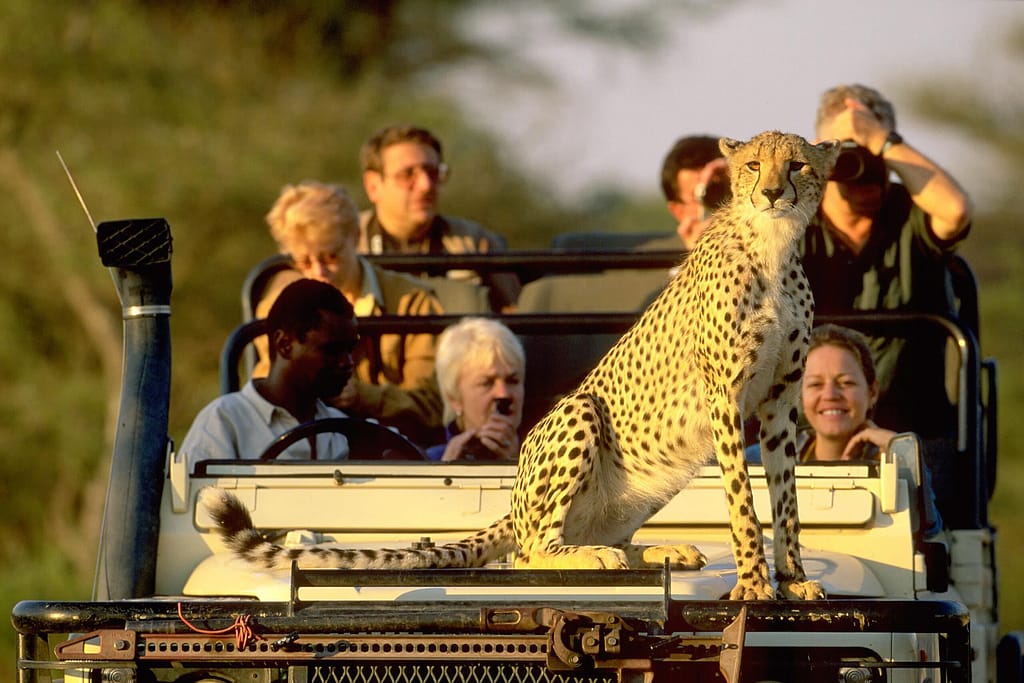Embarking on a safari in South Africa is a dream for many. But timing your trip right is crucial for the best experience.
South Africa offers diverse wildlife and landscapes, making it a top safari destination. The country has varied climates, so understanding the seasons helps in planning. South Africa’s wildlife viewing peaks at certain times of the year. From lush green landscapes to dry, game-rich plains, each season offers unique experiences.
Knowing the best time to visit can enhance your adventure. The drier winter months often provide clearer views of animals at waterholes. Meanwhile, the summer months offer lush scenery and newborn animals. This guide will help you decide the perfect time for your safari. Whether you seek the Big Five or vibrant birdlife, timing your safari well ensures unforgettable memories.

Credit: www.responsibletravel.com
Introduction To South African Safaris
South African safaris offer a unique and unforgettable experience. Imagine seeing majestic lions, elegant giraffes, and powerful elephants in their natural habitat. The vast landscapes and diverse wildlife make South Africa a top destination for safari enthusiasts.
Why South Africa?
South Africa boasts some of the best safari parks in the world. Kruger National Park is a prime example, home to the Big Five: lions, leopards, rhinoceroses, elephants, and Cape buffalo. The park’s size and variety of animals attract thousands of visitors every year.
Another reason to choose South Africa is the country’s excellent infrastructure. Well-maintained roads and facilities make it easier for you to explore the wild. Additionally, many safari lodges offer luxury accommodations, combining comfort with adventure.
South Africa’s diverse landscapes also provide unique safari experiences. From the savannahs of Kruger to the wetlands of iSimangaliso, there’s something for every nature lover. Have you considered how diverse environments can enhance your safari?
------------------------------------------------------------
Book Your Next Africa Experience
Book Your Next Africa Experience
------------------------------------------------------------
Types Of Safari Experiences
South Africa offers a range of safari experiences to suit different preferences. Guided game drives are a popular choice, where an experienced ranger takes you through the park in a 4×4 vehicle. These drives often happen at dawn and dusk, when animals are most active.
If you prefer a more intimate experience, walking safaris might be for you. Accompanied by a trained guide, you walk through the bush, learning about the flora and fauna up close. It’s a thrilling way to connect with nature on a personal level.
For those who crave luxury, consider a fly-in safari. You fly directly to a remote lodge and enjoy exclusive game drives and fine dining. This option is perfect for a special occasion or a romantic getaway.
Have you thought about combining different types of safaris? Mixing game drives with walking safaris can provide a well-rounded adventure. Which type of safari do you think would suit you best?
Weather And Climate
Planning a safari in South Africa can be thrilling, but timing is crucial. Understanding the weather and climate helps you decide when to go for the best experience. Seasons affect not just your comfort, but also wildlife sightings.
Seasons Overview
South Africa has distinct seasons that impact your safari experience. Summer runs from December to February, offering hot and humid weather. Winter, from June to August, brings cooler temperatures and dry conditions.
Spring and autumn are transitional periods. Spring (September to November) sees blooming flora, while autumn (March to May) offers mild weather. Each season changes the landscape and wildlife behavior.
Impact On Wildlife Viewing
Wildlife viewing varies with the seasons. During the dry winter months, animals gather around waterholes, making sightings more frequent. In summer, the lush vegetation can make animals harder to spot.
Bird watching is exceptional in summer, with migratory species arriving. The rainy season brings newborns and predator activities, adding excitement to your safari.
Consider what you want to see. Do you prefer spotting large herds or witnessing predator-prey interactions? Your choice of season can make all the difference.
Have you ever wondered why some safaris are more memorable than others? Timing can be key. Think about what you want from your adventure and plan accordingly.
Summer Safari Insights
Embarking on a summer safari in South Africa offers a unique opportunity to experience the vibrant wildlife and breathtaking landscapes in a different light. The warm months bring a burst of life to the savannahs, making this time ideal for adventure seekers and nature lovers alike. But what makes summer so special for a safari? Let’s dive into the advantages and potential drawbacks of choosing this season for your adventure.
Advantages Of Summer
During the summer, South Africa’s wildlife is most active, offering you a chance to witness incredible animal behaviors. The lush green vegetation provides stunning backdrops for photographs and enhances your safari experience.
Waterholes become bustling hubs of activity as animals congregate for hydration, making them prime spots for wildlife viewing. You might even spot rare species making their appearances.
Summer often coincides with the birth season for many animals, offering the rare sight of newborns. Watching baby animals take their first steps is truly heartwarming.
Potential Drawbacks
Summer in South Africa can be quite hot, which might be uncomfortable for those unaccustomed to high temperatures. Are you prepared to endure the heat for a rewarding experience?
The lush vegetation, while beautiful, can sometimes make it difficult to spot wildlife hidden among the foliage. Patience becomes your best ally.
Along with the vibrant scenery comes the increase in insects, including mosquitos. Packing insect repellent is a must to ensure a comfortable safari experience.
Considering these points, have you thought about how you will prepare for these challenges? Your readiness can greatly influence your enjoyment and the memories you create.

Credit: www.responsiblevacation.com
Winter Safari Insights
When planning a safari in South Africa, winter offers unique insights and experiences that are worth considering. While many people associate safaris with the blazing sun of summer, winter in South Africa can be a magical time to explore the wild. As the temperature drops, the landscape transforms, offering different advantages and potential drawbacks for those eager to witness wildlife in its natural habitat.
Advantages Of Winter
Winter in South Africa, from May to September, brings cooler temperatures that make safari drives more comfortable. You won’t be sweating under the African sun, which can be a relief during long game drives.
With less foliage, it’s easier to spot animals. They gather around waterholes, making sightings more frequent and predictable. Imagine seeing a herd of elephants or a pride of lions without straining your eyes through dense bush.
Winter is also the dry season, meaning fewer mosquitoes and a lower risk of malaria. This can be a significant factor if you’re traveling with children or anyone susceptible to insect bites.
Potential Drawbacks
While winter offers cool comfort, it can get chilly in the early mornings and evenings. You’ll need to pack warm layers to keep cozy during dawn and dusk safari drives.
Some animals may be less active in the cooler weather. You might miss out on witnessing behaviors typical in the warmer months, like the playful antics of young animals.
Winter daylight hours are shorter, potentially limiting the time you have for game viewing. It’s crucial to plan your safari drives strategically to maximize your wildlife encounters.
Have you ever wondered how the landscape changes with the seasons? Exploring South Africa in winter might just surprise you with its serene beauty and abundant wildlife. Are you ready to embrace the chilly mornings for a chance to see nature like never before?
Best Months For Safari
South Africa offers incredible safari experiences year-round. But certain months stand out for their unique wildlife sightings and favorable weather. Discover the best months to embark on your South African safari adventure.
Top Months To Visit
May to September are prime months for safari. During these months, the dry season prevails, making wildlife easier to spot. Vegetation is sparse, and animals gather around waterholes, providing excellent viewing opportunities.
June to August are particularly popular. These months are winter in South Africa, ensuring cooler temperatures and fewer mosquitoes. The lack of rain means animals are more concentrated around water sources.
Month-by-month Breakdown
January: Summer rains make landscapes lush but spotting wildlife can be challenging. Birds are abundant.
------------------------------------------------------------
Book Your Next Africa Experience
Book Your Next Africa Experience
------------------------------------------------------------
February: Similar to January, expect vibrant scenery and active birdlife. Big game sightings might be less frequent.
March: Rain starts to decrease. Vegetation remains dense, yet wildlife viewing improves.
April: Transition month. Rainfall lessens, and animals become more visible.
May: Dry season begins. Wildlife sightings increase as animals gather around waterholes.
June: Cooler weather. Excellent time for safari with clear skies and concentrated wildlife.
July: Peak safari season. Water scarcity brings animals closer, enhancing viewing opportunities.
August: Continues the trend of optimal wildlife viewing. Less foliage makes spotting easier.
September: End of dry season. Animals still congregate near water sources, offering great sightings.
October: Start of summer rains. Vegetation begins to thicken, but wildlife is still visible.
November: Rain increases, making landscapes green. Ideal for bird watching.
December: Summer rains peak. Wildlife viewing may be challenging, but birdlife thrives.
Wildlife Patterns And Movements
When planning a safari in South Africa, understanding wildlife patterns and movements can greatly enhance your experience. Animals follow specific routines and behaviors based on the seasons, availability of food, and breeding cycles. Knowing when and where to find them can make all the difference in your adventure.
Migratory Species
Many animals in South Africa migrate in search of food and water. These movements are often predictable and can be the highlight of your safari. For instance, zebras and wildebeests travel long distances during the dry season to find greener pastures.
During my last trip, witnessing the Great Migration in Kruger National Park was breathtaking. Thousands of animals moved in unison, creating a powerful spectacle. Wouldn’t you love to see such a natural phenomenon?
Bird watching enthusiasts will also find South Africa rewarding. Many bird species migrate seasonally, offering unique viewing opportunities. Keep your binoculars handy!
Breeding Seasons
Breeding seasons bring a different kind of excitement to your safari. During these times, you can witness animals engaging in unique behaviors. For example, male impalas often battle for dominance, which is a sight to behold.
Spring and summer are prime breeding seasons for many species. You may get the chance to see newborns taking their first steps. Isn’t that something you wouldn’t want to miss?
Understanding these patterns not only helps you plan your trip but also makes each sighting more meaningful. Knowing why animals behave the way they do adds a layer of depth to your safari experience.
So, when is your next trip? Will you time it to catch these incredible moments?
Special Events And Activities
South Africa offers incredible safari experiences, with the dry winter months from May to September being ideal. Wildlife spotting is easier as animals gather around water sources. Enjoy the adventure of seeing lions, elephants, and rhinos in their natural habitats during this time.
South Africa offers more than just wildlife viewing on a safari. Special events and activities can make your safari experience unforgettable. From festivals to unique seasonal activities, there’s always something exciting to do. Let’s dive into some of the best events and activities you can enjoy.Safari Festivals
Safari festivals in South Africa celebrate the rich culture and wildlife. The Marula Festival in Limpopo is one such event. It celebrates the marula fruit harvest. Enjoy traditional dances, music, and local foods. The festival usually takes place in February. Another popular festival is the Knysna Oyster Festival. It happens in June and July. It offers a mix of sports, food, and family activities. You can taste fresh oysters and enjoy the beautiful coastal scenery.Unique Seasonal Activities
Different seasons offer unique activities on a safari. During the dry season, from May to September, you can enjoy walking safaris. The dry landscape makes it easier to spot animals. It’s also the best time for game drives. Animals gather around waterholes, making sightings more frequent. In the wet season, from November to March, bird watching becomes a highlight. Migratory birds arrive, adding color to the landscape. You can also witness the birth of many animals. This makes for an exciting and lively safari experience. Each season brings something special. Plan your trip according to the activities you want to enjoy. South Africa’s safaris offer something for everyone, all year round. “`Tips For Planning Your Safari
For the best safari experience in South Africa, plan your visit during May to September. During these months, wildlife is more active and easier to spot. The dry season offers clear skies and pleasant temperatures, enhancing your adventure.
Planning a safari in South Africa can be an exhilarating experience. To ensure you have the best possible adventure, it’s essential to pay attention to key details before you go. Here, we offer practical tips for planning your safari to make your journey unforgettable.Booking And Reservations
Booking your safari well in advance is crucial. The best time to visit South Africa for a safari is during the dry season, from May to September. During this period, wildlife is easier to spot as animals gather around water sources. Consider booking your accommodations early. Popular lodges and camps fill up quickly during peak season. Aim to book at least six months ahead to secure your preferred dates and locations. Research different safari packages. Some may offer additional activities such as guided walks or night drives. Compare options to find one that suits your interests and budget.Packing Essentials
Packing smartly can make your safari experience much more comfortable. Start with lightweight, breathable clothing in neutral colors. Bright colors can scare away animals, while dark colors attract insects. Don’t forget a hat and sunglasses. The African sun can be intense, and these items will protect you from UV rays. Bring a good pair of binoculars. They allow you to observe wildlife from a distance without disturbing them. A quality camera is also a must-have to capture those incredible moments. What about medication? Pack a basic first-aid kit and any personal medications. Malaria prophylactics are recommended if you’re visiting a high-risk area. Lastly, think about your comfort. Pack insect repellent, sunscreen, and a reusable water bottle to stay hydrated. Are you ready for an adventure of a lifetime? Planning ahead with these tips ensures your safari in South Africa is both safe and thrilling.:max_bytes(150000):strip_icc()/when-to-go-on-safari-1454115-FINAL-5be5ad46c9e77c00260b8084.png)
Credit: www.tripsavvy.com
Frequently Asked Questions
What Is The Best Time Of Year To Go On A Safari In South Africa?
The best time for a safari in South Africa is from May to September. These months offer cooler temperatures and excellent wildlife viewing conditions.
Which Month Is Best To Visit South Africa?
The best months to visit South Africa are May to September. These months offer excellent wildlife viewing opportunities. The weather is also pleasant, making it ideal for outdoor activities.
What Months Are Best For A Safari In Kruger?
The best months for a safari in Kruger are May to September. This period offers cooler temperatures and excellent wildlife viewing.
What Is The Best Month To Go On Safari?
The best month for safari is June. Wildlife is easier to spot due to dry conditions and sparse vegetation.
Conclusion
Choosing the best time for a safari in South Africa depends on your preferences. Wildlife is most active during the dry season from May to October. Enjoy clear skies and fewer mosquitoes. The wet season, from November to April, showcases lush landscapes and baby animals.
Each season offers unique experiences. Plan your trip based on what you want to see. Whether it’s the Big Five or vibrant birdlife, South Africa has it all. Pack your bags and embark on an unforgettable adventure. The magic of the South African wilderness awaits.


